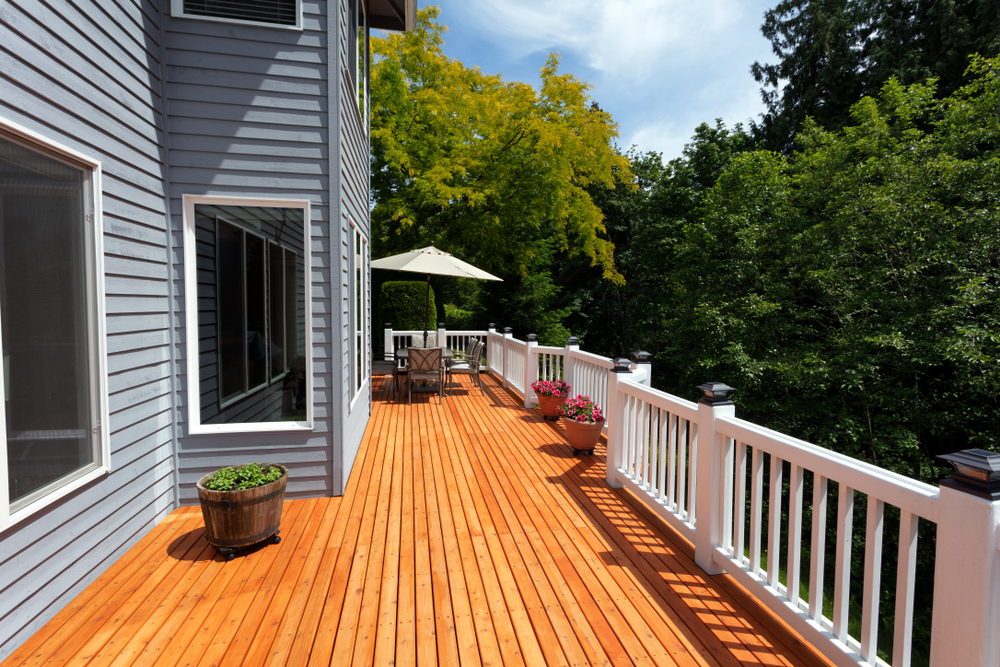Building a new deck is an awesome way to get more use out of your backyard. However, there’s quite a bit of planning required if you want the project to go smoothly. Most homeowners get excited about designing their deck, choosing the perfect type of wood, and planning where their outdoor kitchen will go. But what many people don’t focus on – or even realize – is that they need to get a permit before they begin building a deck on their property.
Why You Need a Permit to Build a Deck on Your Property
While taking steps to obtain a permit might seem like a pain, it does guarantee that your deck will be built safely and in accordance with local regulations. These regulations can change from city to city all across Canada.
Furthermore, building without the proper permit can have consequences ranging from a hefty fine to a lawsuit if someone gets hurt due to your deck not being up to code. You could also run into trouble if you decide to sell your home and the buyer asks for proof of the permit.
That said, not every backyard deck requires a permit. It all depends on local safety regulations.
For example, the International Residential Code (applicable across much of the U.S.) requires a permit for any deck more than 30 inches above the ground, more than 200 square feet in area, or attached to the home in a way that it could act as a fire exit. In Toronto, on the other hand, a building permit is required for any porch or deck more than 60 centimetres above grade.
It’s better to be safe than sorry. So, if you’re building a deck attached to your home, check with your local guidelines to find out if you might need a permit.
How to Get a Building Permit for a Deck
Now that we understand why it’s necessary, let’s talk about how you can go about getting a building permit for your new deck.
Step 1: Find out who issues building permits in your region and get in contact with them.
If you live in a city, call or email your local Building Inspections department, or drop by City Hall to pay them a visit. If you live in the country, you might have to work with an independent inspector to ensure your deck meets local standards. Either way, get in touch with your local government to find out who is responsible for handling permits in your area.
Your local Building Inspections department should provide you with specific guidelines for building your deck and tell you what documents you must submit to obtain a permit.
Step 2: Complete a permit application and submit all necessary drawings and plans.
Although these requirements can vary between cities or regions, there are a few standard forms and plans that you’ll likely need to send in for review.
Typically, if you want to build a deck, veranda, or porch, you’ll need to submit the following:
- A completed application.
- A site plan to show the deck location in relation to your house (and shed or pool house if you have one). Since the site plan demonstrates that your deck complies with lot coverage requirements, it’s important to make sure the deck dimensions, lot area, and property lines are accurately represented.
- A deck plan with construction details. This should include details of the footings (size, spacing, etc.) and guard rails (including their location in relation to stairways or edges of the deck). You should also list the dimensions and locations of all columns, joists, and beams. If your structure will have a staircase, the deck plan should include the height and depth of the stair treads.
- A cross-section of the deck that includes the height of the deck and any railings, along with the depth of the footings. The goal here is to demonstrate compliance with safety and structural standards.
Get Your Project Off the Ground
After going to the trouble of creating all these drawings and deck plans, the last thing you’d want is for your application to get denied. So, make sure that your drawings and measurements are accurate and truly comply with the building code and local bylaws.
Another option is to work with a professional builder who can help at every step of the project, from getting a permit to constructing your deck. Find a deck specialist to help with your project on HomeStars!
Article Updated June 2022.
